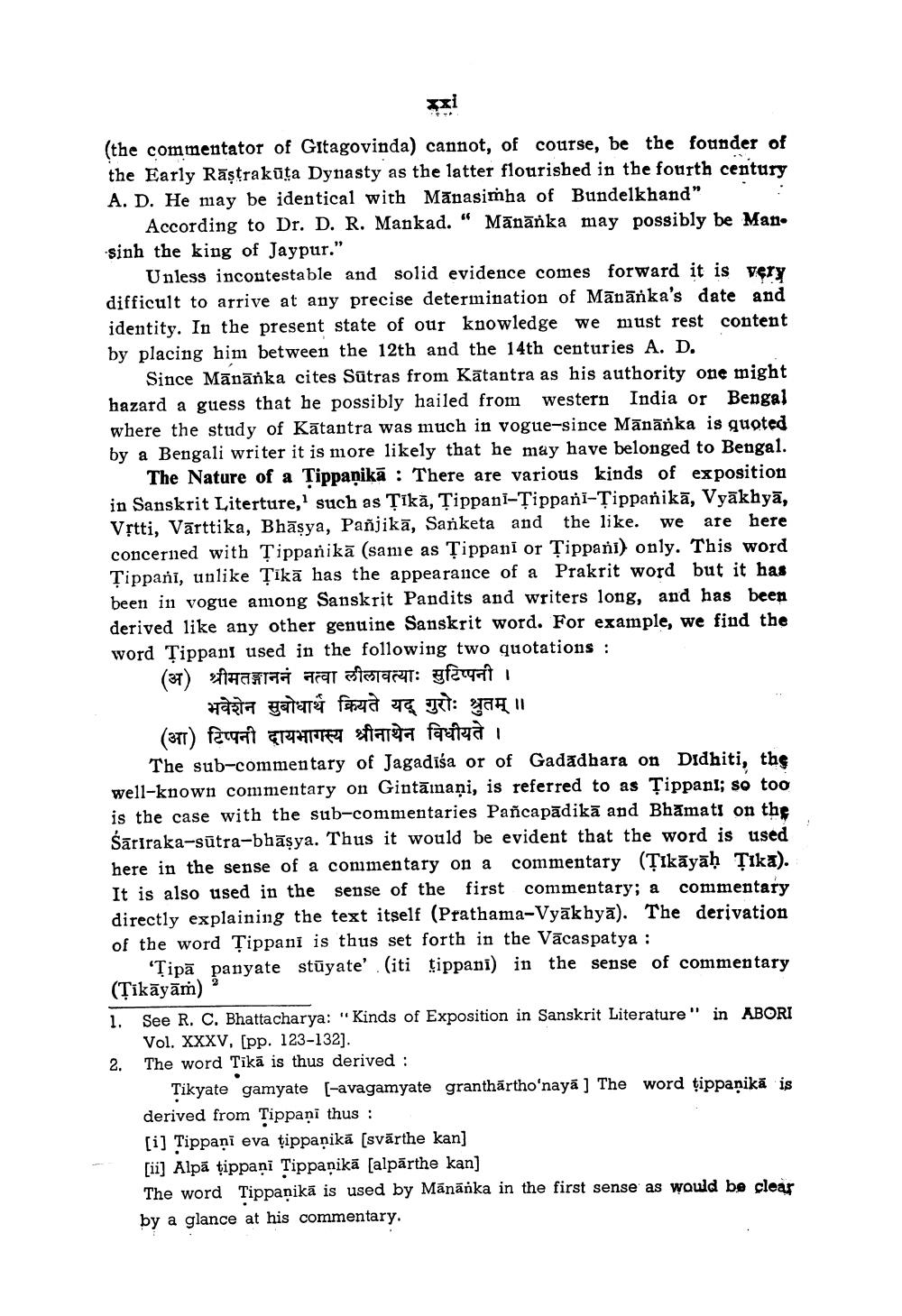________________ (the commentator of Gitagovinda) cannot, of course, be the founder of the Early Rastrakuta Dynasty as the latter flourished in the fourth century A. D. He may be identical with Manasimha of Bundelkhand" According to Dr. D. R. Mankad. " Mananka may possibly be Man. sinh the king of Jaypur." Unless incontestable and solid evidence comes forward it is very difficult to arrive at any precise determination of Mananka's date and identity. In the present state of our knowledge we must rest content by placing him between the 12th and the 14th centuries A. D. Since Mananka cites Sutras from Katantra as his authority one might hazard a guess that be possibly hailed from western India or Bengal where the study of Katantra was much in vogue-since Mananka is quoted by a Bengali writer it is more likely that he may have belonged to Bengal. The Nature of a Tippanika : There are various kinds of exposition in Sanskrit Literture, such as sika, Tippani-Tippani-Tippanika, Vyakhya, Vitti, Varttika, Bhasya, Panjika, Sanketa and the like. we are here concerned with Tippanika (same as Tippani or Tippani) only. This word Tippani, unlike Tika has the appearance of a Prakrit word but it has been in vogue among Sanskrit Pandits and writers long, and has been derived like any other genuine Sanskrit word. For example, we find the word Tippant used in the following two quotations : (3) jasna Har Saat: gfagati भवेशेन सुबोधार्थ क्रियते यद् गुरोः श्रुतम् // (आ) टिप्पनी दायभागस्य श्रीनाथेन विधीयते / The sub-commentary of Jagadisa or of Gadadhara on Didhiti, t well-known commentary on Gintamani, is referred to as Tippani; so too is the case with the sub-commentaries Pancapadika and Bhamati on the Sariraka-sutra-bhasya. Thus it would be evident that the word is used here in the sense of a commentary on a commentary (Tikayah Tika). It is also used in the sense of the first commentary; a commentary directly explaining the text itself (Prathama-Vyakhya). The derivation of the word lippani is thus set forth in the Vacaspatya : 'Tipa panyate stuyate (iti tippani) in the sense of commentary (Tikayam) ? 1. See R. C. Bhattacharya: "Kinds of Exposition in Sanskrit Literature" in ABORI Vol. XXXV, (pp. 123-132]. 2. The word Tika is thus derived : Tikyate gamyate [-avagamyate granthartho'naya ] The word tippanika is derived from Tippaai thus : [i] Tippani eva tippanika (svarthe kan] [ii] Alpa tippani Tippanika (alparthe kan] The word Tippanika is used by Mananka in the first sense as would be clear by a glance at his commentary.




